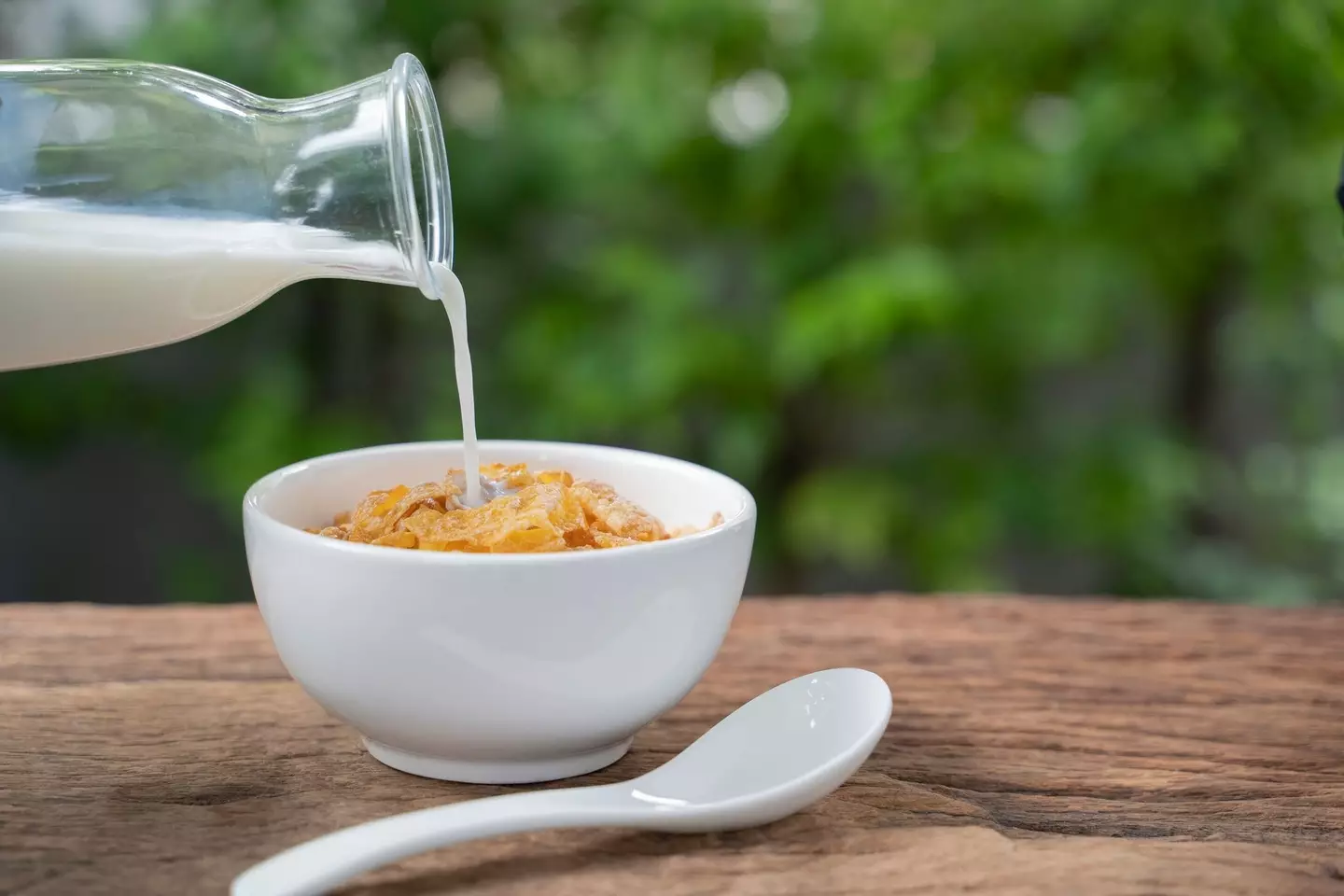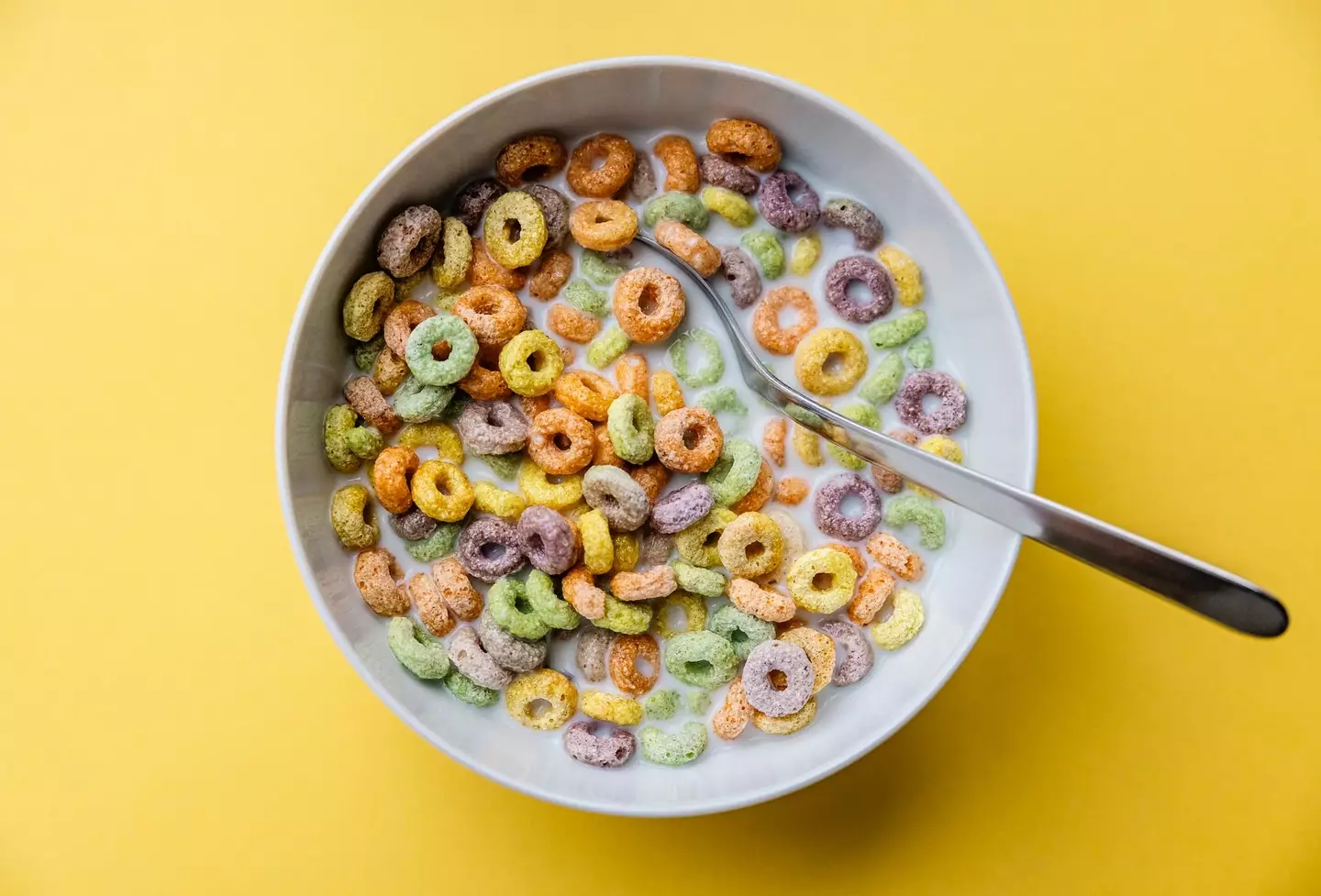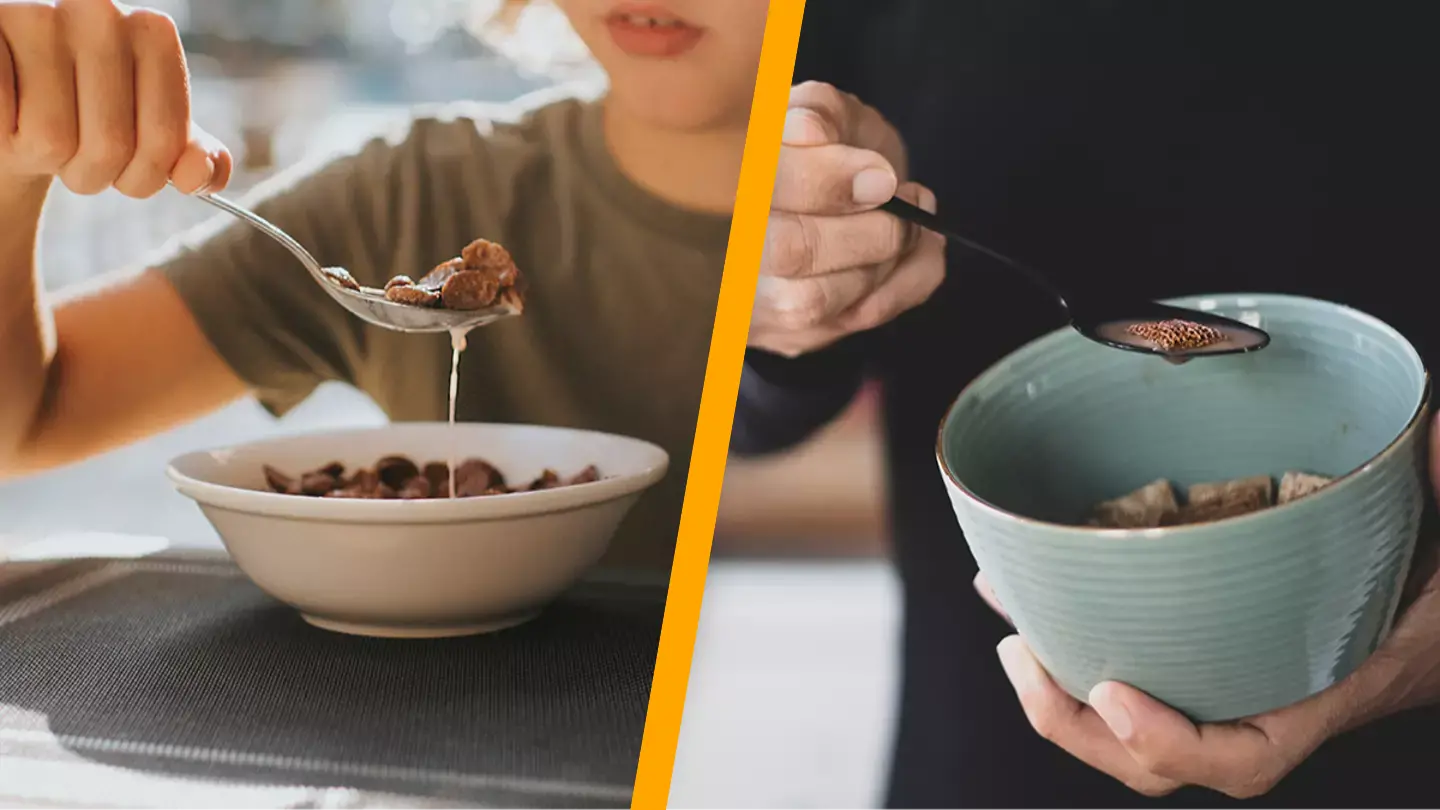Pause for a moment before enjoying another spoonful of your favorite cereal, as a former FDA employee has named what he considers the most harmful breakfast option, and it just might be what you’re having.
It’s no secret that the US food market isn’t known for being the healthiest, but just how detrimental could our breakfast choices be?
Cereals are often marketed as being multi-grain and healthy, with a touch of sweetness to appeal to both adults and children nationwide.
However, Dr. Darin Detwiler has identified one particular brand that is reportedly ‘linked to health concerns’ including cancer.
So, just how harmful can cereal be?
Apparently, it can be quite concerning.

The expert shared with the Daily Mail that there is a type of Kellogg’s cereal that is ‘heavily processed and contain high levels of added sugars, artificial dyes and preservatives’, along with a long list of ingredients that are potentially harmful to your health.
Detwiler further emphasized that sugar content is among the smaller concerns when consuming this type of cereal.
Interestingly, Kellogg’s most popular cereal is corn flakes, which were originally thought to be intentionally bland to suppress certain thoughts.
Yet, as the years have passed, it appears Kellogg’s has joined other brands in the race to produce the most flavorful cereal.
Unfortunately, ingredients that aren’t good for you tend to be quite delicious.
So, what is considered the worst cereal you can consume?
Sadly, the answer is Kellogg’s Froot Loops.
A single cup of Froot Loops contains 12.35 grams of sugar, which accounts for about half of the daily sugar allowance for children. Detwiler notes that kids often exceed the recommended serving size.
Moreover, the cereal contains Red 40, an additive that’s been banned in several countries due to its association with various health problems.
A study conducted in 2022 by researchers at McMaster University in Ontario, Canada, found that Red 40 is detrimental to the digestive system and could potentially trigger conditions like irritable bowel syndrome and Crohn’s disease.

This isn’t a new revelation about the cereal’s negative health impacts, as just recently, 1,000 individuals protested against these ‘harmful additives’ outside of Kellogg’s Michigan headquarters.
They delivered over 400,000 signatures to the offices in Battle Creek, demanding a halt to the use of such additives.
The petition stated: “It’s now 2024, and Kellogg’s still sells several cereals with artificial colors and flavors in America, all of which target young children.
“Even worse, Kellogg’s continues launching NEW cereals for children filled with artificial ingredients, such as Minecraft Frosted Flakes and Disney’s Little Mermaid Cereal.”
Back in 2015, Kellogg’s announced plans to eliminate color additives by the end of 2018.
The WK Kellogg Company communicated through an email to The Post: “The quality and safety of our foods is our top priority. Our products — and the ingredients we use to make them — are compliant with all applicable relevant laws and regulations, and we remain committed to transparently labeling our ingredients so consumers can easily make choices about the food they purchase.
“Today, more than 85 percent of our cereal sales contain no colors from artificial sources. In fact, we continuously innovate new cereals that do not contain colors from artificial sources across our biggest brands, offering a broad choice of nourishing foods for our consumers,” Kellogg continued.
“This approach is consistent with our commitment to meet evolving consumer preferences.”

